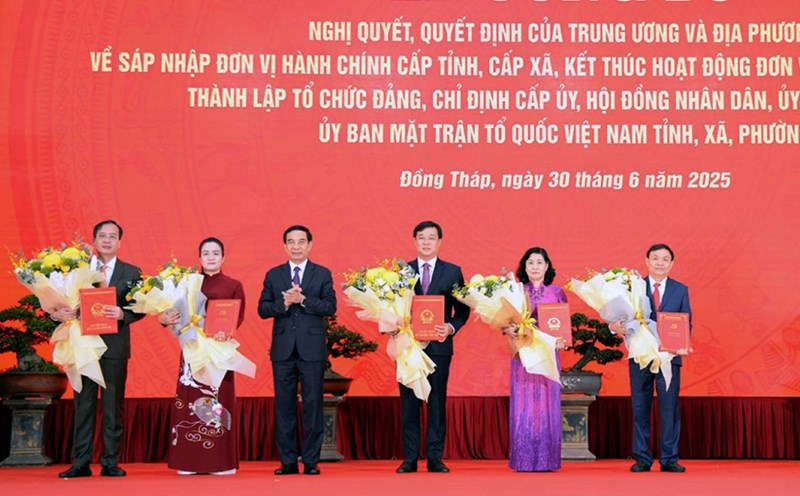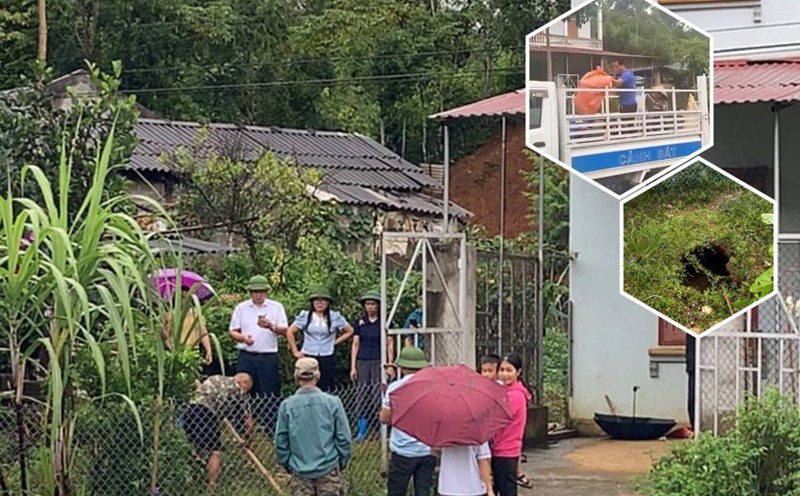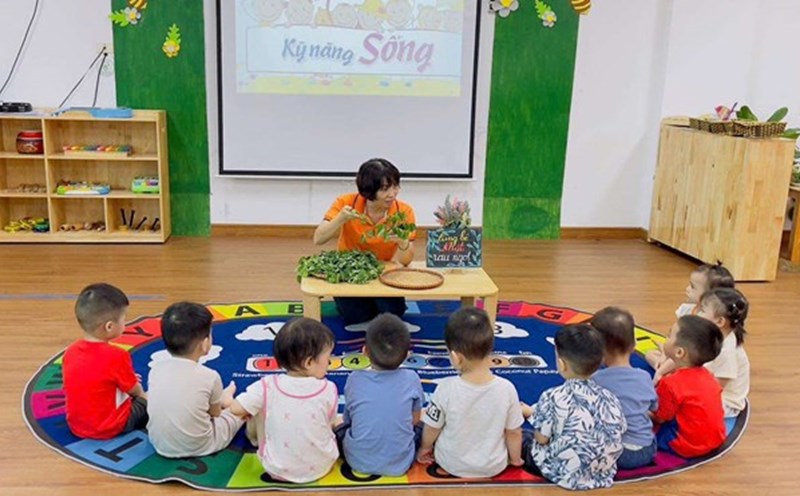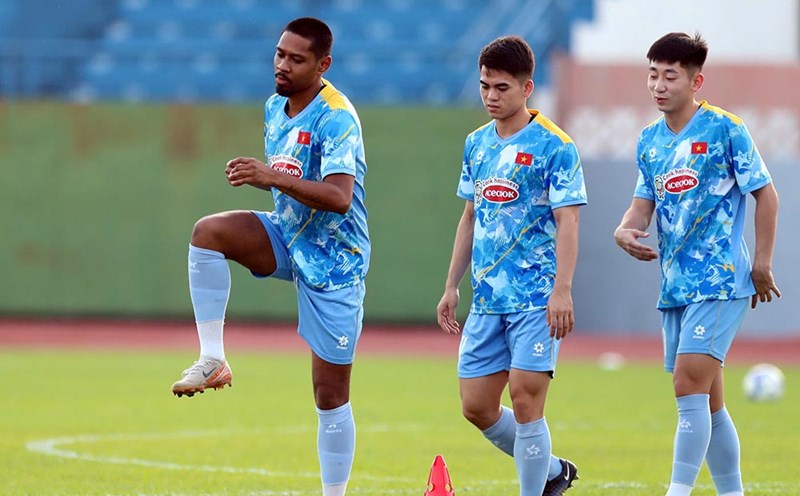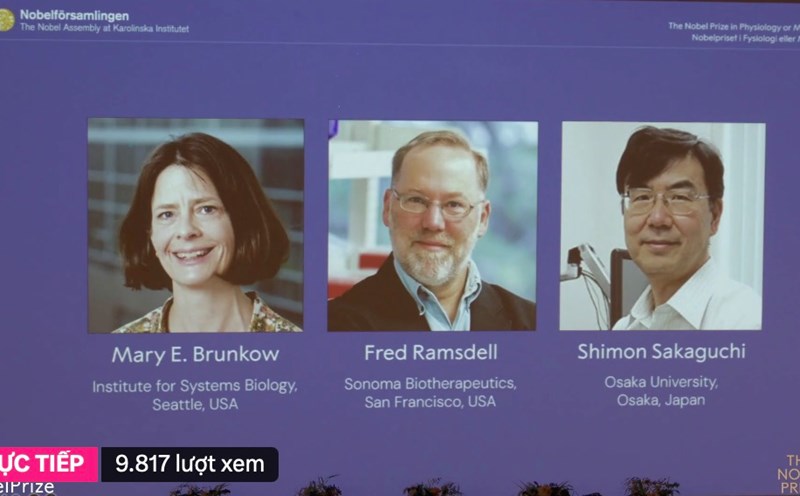On October 6, the Ministry of Agriculture and Environment in coordination with the People's Committee of Dong Thap province organized a conference "Promoting ecological agriculture and transforming the food system to respond to climate change, increase biodiversity and improve livelihoods".
This is a practical activity to celebrate the 80th anniversary of the Food and Agriculture Organization of the United Nations (FAO)'s global action for food security and mark the 30th anniversary of the World Wildlife Fund (WWF) for biodiversity conservation in Vietnam. At the same time, responding to the theme of World Food Day 2025 "Joining hands for food sources and a peaceful future".
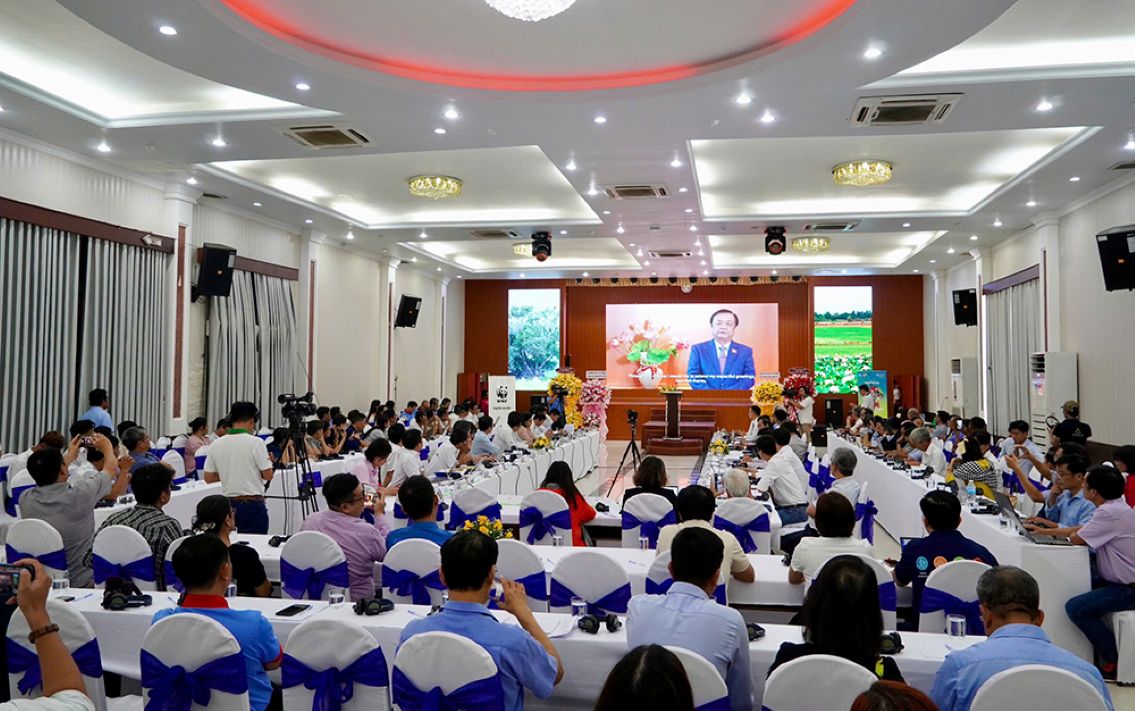
At the conference, delegates made worrying predictions about the Mekong Delta and the national food basins.
According to the forecast of the Intergovernmental Committee on Climate Change (IPCC) (2023), about 40% of the Mekong Delta's area may be flooded due to sea level rising to 1 meter, threatening the livelihoods of more than 17 million people (Vietnam Statistics Office, 2023). The intertwined challenges that the food system is facing such as climate change, biodiversity loss and food insecurity can only be solved through multi-subject cooperation. In that context, ecological agriculture opens up a strong, comprehensive approach, integrating indigenous knowledge with modern science and ecological principles to contribute to the transformation of the food system to be more resilient, sustainable and equitable.
Not attending the conference directly, Vice Chairman of the National Assembly Le Minh Hoan posted a video clip, sharing: "Eco-agriculture is not just a method of farming. That is how we know how to listen and respect nature... That is a long-term vision for Vietnam to fulfill global commitments on climate change, towards net emissions of '0' by 2050, and 'crop' for the future for future generations". Mr. Hoan suggested the problem with 4 messages: Put farmers at the center; skillfully combine indigenous knowledge with science and technology; mobilize all social resources; expand regional cooperation and linkage.
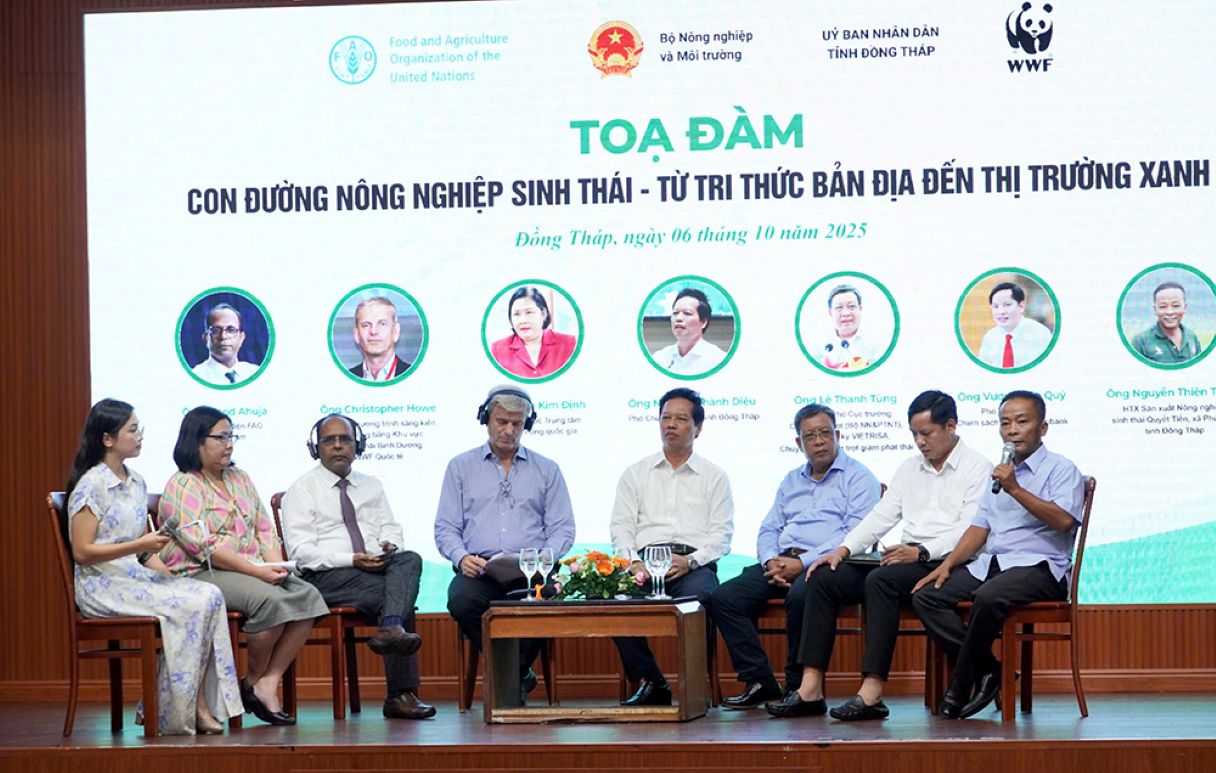
Speaking at the event, Mr. Vinod Ahuja, Chief Representative of UNESCO in Vietnam, emphasized: This event marks an important milestone in our common journey to build sustainable and resilient food systems in Vietnam. In particular, the multilateral seminar session is a clear demonstration of our commitment to turning policies into concrete actions. By promoting stronger public-private partnerships and mobilizing resources, we can continue the country's achievements and ensure that the Vietnamese agricultural sector is fully equipped to respond to the impacts of climate change, towards a better future for the people".
Mr. Thibault Ledecq - Conservation Director of WWF-Vietnam said: By prioritizing sustainable land use planning and management, promoting green ecological agricultural models, and building a close cooperative relationship between parties in the supply chain, we can develop a sustainable market and expand green finance sources. This will create a positive circulation, where prosperity is associated with ecosystem recovery, towards a future where people and nature develop harmoniously".
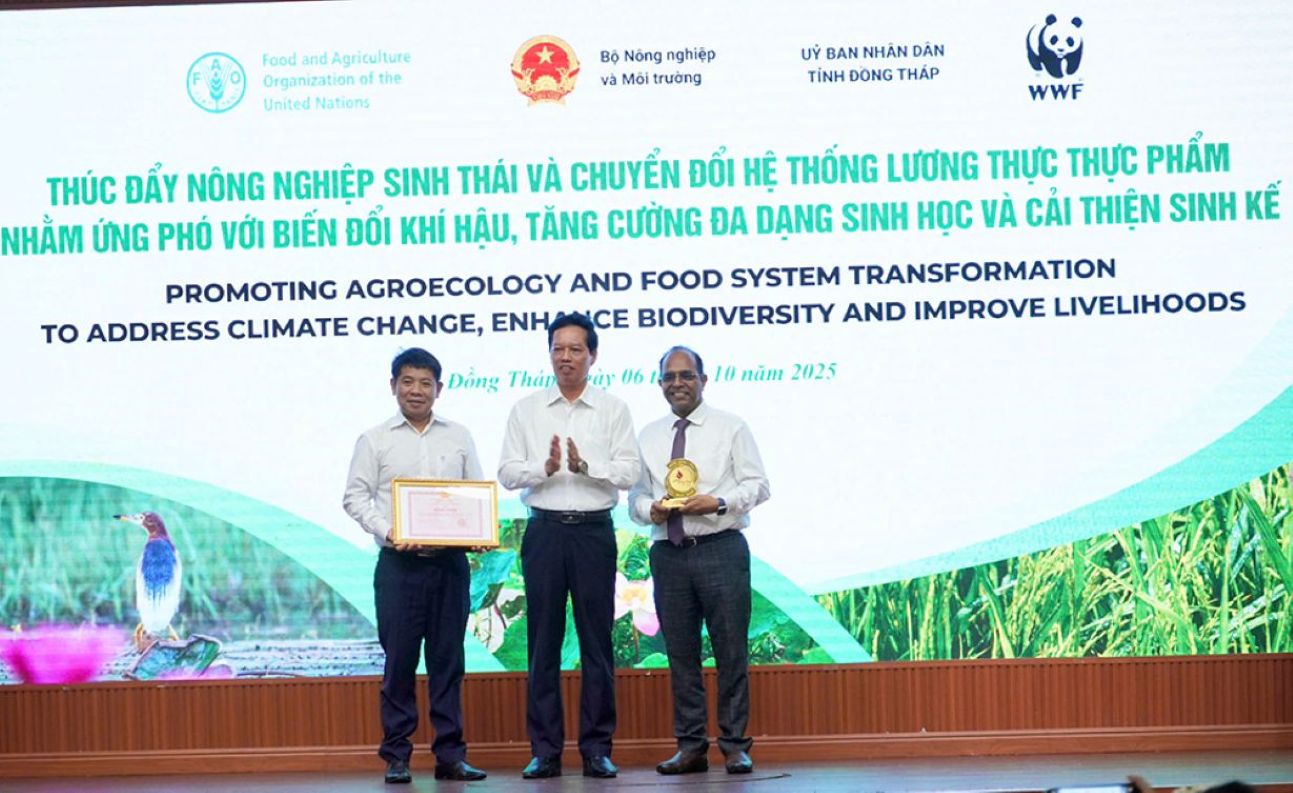
Speaking at the conference, Mr. Nguyen Thanh Dieu - Vice Chairman of Dong Thap Provincial People's Committee - affirmed that Dong Thap will continue to accompany farmers and businesses, creating favorable conditions to expand sustainable and environmentally friendly farming models. The province aims to ensure both food security and increase income for people, contributing to building the image of Dong Thap as a leading locality in ecological agriculture transformation, linking science and technology and production life in rural areas.

